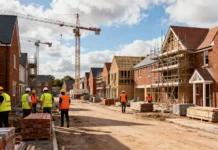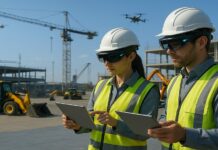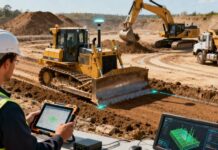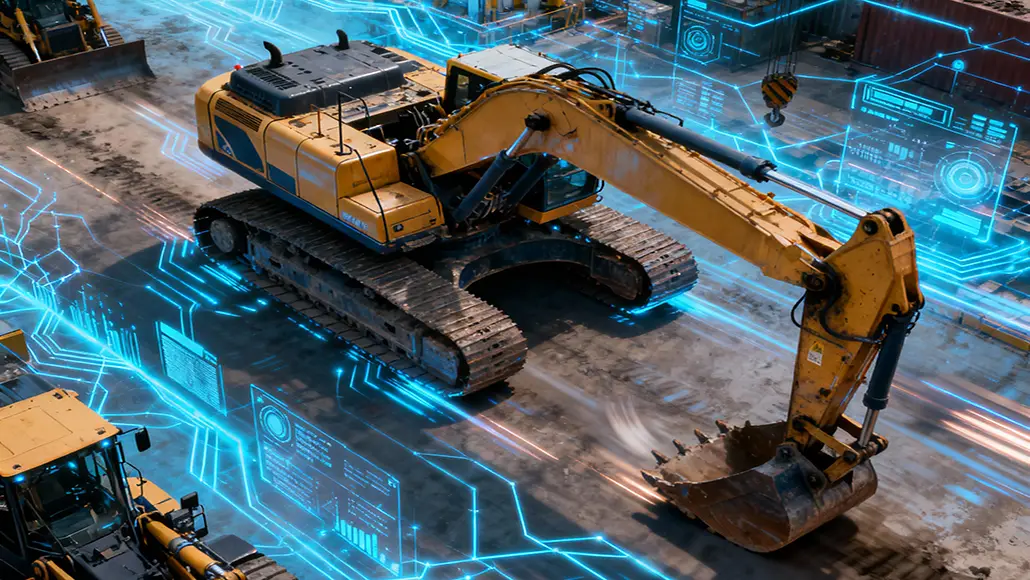Digital Transformation Driving Smarter Construction Projects
The construction industry, long characterized by traditional methods and manual processes, is experiencing a profound metamorphosis driven by digital transformation in construction projects. This technological revolution encompasses far more than simple digitization—it represents a fundamental reimagining of how construction projects are conceived, planned, executed, and managed throughout their entire lifecycle. As the industry grapples with increasing complexity, demanding schedules, and the need for greater efficiency, digital technologies are emerging as the catalyst for unprecedented improvements in productivity, quality, and sustainability.
The Paradigm Shift in Construction Technology
Digital transformation in construction represents a comprehensive integration of advanced technologies that create interconnected, data-driven ecosystems. Unlike previous technological adoptions that addressed isolated challenges, contemporary digital transformation creates synergistic relationships between multiple systems, enabling real-time decision-making, predictive analytics, and automated process optimization.
The urgency for digital transformation has intensified due to persistent industry challenges including budget overruns, project delays, safety concerns, and productivity gaps compared to other sectors. Research indicates that digital transformation can yield productivity gains of up to 15%, while reducing project timelines by up to 50% and cutting costs by over 52%. These compelling statistics underscore why construction technology adoption has accelerated dramatically across all project scales and types.
Building Information Modeling: The Digital Foundation
BIM in construction serves as the cornerstone of digital transformation, creating comprehensive digital twins that encompass geometric, spatial, and temporal project information. Modern BIM implementations extend beyond traditional 3D modeling to incorporate 4D scheduling, 5D cost management, and 6D lifecycle analysis, creating holistic project representations that enable sophisticated analysis and optimization.
Contemporary BIM platforms facilitate real-time collaboration among distributed project teams, breaking down traditional silos between architects, engineers, contractors, and owners. Cloud-based BIM environments enable simultaneous access to project models, ensuring all stakeholders work with current information while maintaining complete revision control and audit trails.
Advanced BIM applications incorporate generative design algorithms that explore thousands of design alternatives based on specified parameters and constraints. These systems can optimize building performance for energy efficiency, material usage, structural integrity, and cost-effectiveness simultaneously, identifying solutions that human designers might not consider.
Clash detection and resolution capabilities represent critical BIM functionalities that prevent costly construction conflicts. Automated clash detection identifies spatial conflicts between building systems before construction begins, while resolution workflows facilitate collaborative problem-solving among project teams.
Internet of Things: Creating Connected Construction Sites
IoT construction applications transform traditional construction sites into intelligent, connected environments where real-time data flows seamlessly between equipment, materials, workers, and management systems. This connectivity enables unprecedented visibility into project progress, resource utilization, and operational efficiency.
Sensor networks deployed throughout construction sites monitor environmental conditions, equipment performance, worker safety, and material properties continuously. These systems provide early warning of potential issues while generating comprehensive datasets that inform decision-making and process optimization.
Smart equipment integration enables predictive maintenance protocols that minimize downtime and extend equipment lifecycles. IoT sensors monitor equipment utilization, maintenance needs, and operational parameters, automatically scheduling maintenance activities and optimizing resource allocation.
Wearable technology enhances worker safety through continuous monitoring of vital signs, location tracking, fall detection, and environmental exposure assessment. These systems can automatically trigger emergency responses while providing valuable data for safety program optimization.
Material tracking systems utilize IoT technologies to monitor inventory levels, delivery schedules, and quality parameters throughout the supply chain. RFID tags and smart sensors ensure materials are delivered when needed, stored properly, and meet quality specifications.
Artificial Intelligence: Intelligent Decision Making
AI in construction applications leverage machine learning algorithms and advanced analytics to extract actionable insights from the vast quantities of data generated by modern construction projects. These systems enable predictive analytics, automated scheduling, risk assessment, and quality control optimization.
Predictive analytics applications analyze historical project data, current conditions, and external factors to forecast potential delays, cost overruns, and quality issues. These systems enable proactive management strategies that prevent problems before they occur, rather than reactive responses to existing issues.
Computer vision systems automate quality inspection processes by analyzing photographs and video footage from construction sites. These systems can identify defects, verify work completion, and ensure compliance with specifications more consistently and efficiently than manual inspection processes.
Natural language processing technologies automate document analysis, contract review, and regulatory compliance checking. These systems can extract critical information from specifications, identify potential conflicts, and ensure project documentation meets required standards.
Smart Construction Projects: Integrated Technology Ecosystems
Smart construction projects represent the culmination of digital transformation efforts, where multiple technologies work in concert to create highly efficient, responsive, and adaptive building processes. These projects demonstrate how integrated technology ecosystems can transform traditional construction workflows.
Digital twin technology creates dynamic virtual representations of construction projects that update continuously based on real-world data. These systems enable simulation of construction sequences, optimization of resource allocation, and prediction of project outcomes with unprecedented accuracy.
Autonomous equipment and robotics are increasingly integrated into smart construction projects. These systems can perform repetitive tasks with greater precision and consistency than human workers while freeing skilled labor for more complex activities.
Drone technology provides comprehensive site monitoring, progress tracking, and quality inspection capabilities. High-resolution imagery and LiDAR scanning create detailed documentation of project progress while identifying potential issues and safety hazards.
Mobile Technology and Field Connectivity
Mobile platforms ensure construction teams maintain connectivity to project information and communication systems regardless of location. Advanced mobile applications provide access to BIM models, project schedules, quality checklists, and communication platforms directly from job sites.
Augmented reality applications overlay digital information onto physical construction environments, enabling workers to visualize completed structures, identify utility locations, and access assembly instructions directly through mobile devices.
Real-time reporting capabilities ensure project data flows immediately from field activities to management systems. This connectivity eliminates delays in information transfer while ensuring decision-makers have access to current project status information.
Cloud Computing and Data Management
Cloud-based construction platforms provide scalable, secure infrastructure for managing the enormous quantities of data generated by digital construction projects. These systems ensure project information remains accessible, backed up, and synchronized across all project participants.
Collaborative workspaces in cloud environments enable distributed project teams to work together effectively regardless of geographic location. These platforms maintain complete revision control while facilitating real-time collaboration on complex design and construction challenges.
Data analytics platforms process construction data to identify trends, optimize processes, and generate insights that inform future project decisions. Machine learning algorithms continuously improve their predictive capabilities as they process more project data.
Implementation Strategies and Change Management
Successful digital transformation requires comprehensive change management strategies that address technological, organizational, and cultural challenges. Construction companies must invest in training programs, modify workflows, and establish new performance metrics aligned with digital capabilities.
Phased implementation approaches allow organizations to gradually adopt digital technologies while building internal capabilities and demonstrating value. Pilot projects provide opportunities to refine processes and build confidence before enterprise-wide deployment.
Integration challenges require careful planning to ensure new technologies work seamlessly with existing systems and processes. API development and data standardization efforts facilitate smooth technology integration while maintaining operational continuity.
Future Horizons in Construction Digitalization
The trajectory of digital transformation in construction points toward increasingly sophisticated applications of emerging technologies. Artificial intelligence capabilities will continue expanding, while 5G connectivity will enable new categories of real-time applications and remote operations.
Digital transformation in construction projects represents more than technological upgrading—it embodies a fundamental reimagining of how the built environment is created. Through the strategic integration of BIM, IoT, AI, and other advanced technologies, the industry is building a foundation for unprecedented efficiency, quality, and sustainability. As these technologies mature and converge, smart construction projects will become the standard rather than the exception, creating a more productive, safer, and more sustainable construction industry that meets the challenges of an increasingly complex world.































